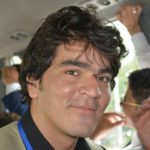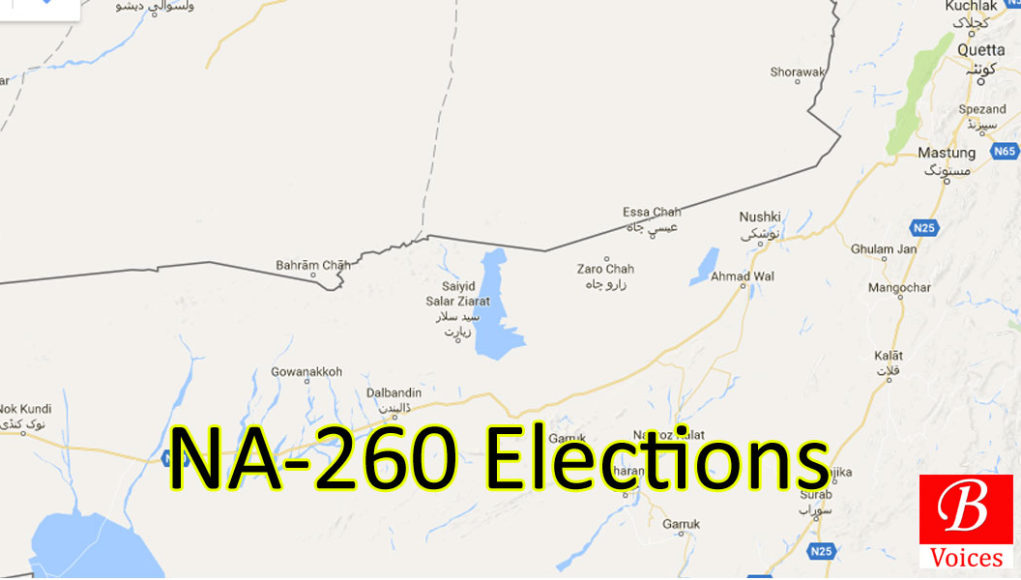 Saddam Shah
Saddam Shah
Balochistan was the least politically active province in 2013 general election, hardly crossing 40 percent turnout, which was still an increase of 10 percent more than previous 2008 elections, despite some fears of security.
But election on NA-260 Quetta-cum-Chagai seat, was thoroughly paradoxical and opposite case, where late Abdul Raheem Mandokhail of PKMAP was elected by grabbing only 30,338 votes where total number of registered voters were 4,29,778. This is also the largest constituency of the country, stretching to 700 km in length. Whereas, same seat was won with 40,773 votes in 2008 elections by PPP candidate.
The politics of ethnicity, tribalism, and sectarianism in Balochistan is not hidden from anyone, and in NA-260 these all three features, occur at the same time because of its immense diversity.
It hardly happens, when Pashtuns of Quetta vote for BNP candidate, even not to any Baloch candidate in large number, and same is true about Balochs. Similar is the case of JUI and HDP, where Hazaras and Balochs and Pashtuns don’t cast their votes to candidate of opposite sect, with very few exceptions.
This extreme division is actually because of conservative sub-nationalists and sectarian politics, campaigned by their so-called leaders, who propagate very contrasting and different interests to very bifurcating target audience.
This by-election in NA-260 is worth observing for five major reasons. First, it would predict people’s mentality of sitting government’s performance in last four years that is coalition of PMLN, NP and PKMAP, and may suggest next winners in elections, to some extent.
NP has withdrawn its candidate in support of JUI, a far right religious party. This is either because NP is not ready to be evaluated of its four-year performance and remains unexposed till general elections coming a head or to ultimately prevent political division among Baloch sub-nationalist parties in the constituency.
PKMAP has been busy in strong campaign, which is joined by its chairman, Mehmood Khan Achakzai, who has addressed the supporters more than once. PKMAP is trying to convey that people are satisfied from its performance and has legitimacy to hold this seat of national assembly even after the death of its elected member, but the results would itself decide many claims of PKMAP, if concluded free and fair.
Secondly, it is important for Balochs to take their historic seat back from a Pashtun candidate. Business Recorder in one of its opinion articles written by Parvez Jabri, published on April 16, 2013 NA-260 Quetta-cum-Chagai predicted some strong candidates contesting on NA-260 seat, which were all Baloch and even didn’t mention PKMAP’s candidate in top five stronger ones, but results of this constituency were quite thinkable.
There were rigging accusation after previous general elections on provincial seats of PB-4 Quetta and PB-5 Quetta and whole national assembly seat of NA-260, which were all won by PKMAP candidates. Late Raheem Mandokhail belonging to 350km farther district of Zhob won NA-260, where Baloch live in majority. Including Balochs, others were locally very surprised over the results of this larger constituency.
BNP would try its best to get its candidate elected, if not then at least, by any Baloch candidate, as Baloch is the largest ethnic group in this constituency. In 2002 and 2008 general elections, this seat of national assembly was won by Baloch candidates from MMA and PPP respectively.
Thirdly, ANP and HDP have withdrawn their candidates in support of BNP candidate. Though they both don’t have winning polls, but it is significant for their alliance against PKMAP and that is a political action and less advertently but more inadvertently gives a signal of a tri-ethnic alliance of Balochs, Pashtuns, and Hazaras that sounds great if political interest is undermined.
Fourthly, it would predict the provincial government sincerity to conduct fair and free elections to prevent rigging in next general elections in entire province. It would also predict the political behavior of people in this province, their tendency of voting and participating in elections.
2013 general election was not sufficiently fair and free, as many protests and sit-ins were held to reconduct fraud elections, and many people did not cast their votes because of fear. So, this by-election is essential to be fair and free, but incident of Naveed Dewar’s killing, who was campaigning for this election for his party man, and was shot down to death. Yet no one has been caught, nor any group has acknowledged responsibility, so should this be taken as one of the failures of government or is this beyond its scope?
Either it was rigging, political division of Balochs or they did not participate in this constituency in large number, but protests were held by PTI, ASWJ, BNP, and JUI to reconduct elections, though such allegations were not proved in election tribunals.
Lastly, this would give implications to the political parties, struggling for power in the province, in upcoming 2018 general election. it would be helpful for political parties to plan their strategies for next elections, which has been initiated and slowly would increase to reach its peak till December of this year.
This by-election in large constituency of NA-260 has so much importance that cannot be simply undermined, and that is why fifteen candidates would be competing on July 15 to avail this seat that would be held even not for a complete year.
Writer is a student of Defence and Strategic Studies at QAU, Islamabad. Follow him on Twitter: @Saddam_Shah98
Disclaimer: Views expressed in this article are those of the author and Balochistan Voices not necessarily agrees with them.
Share your comments!








